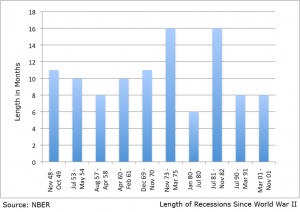Today we’ll be featuring a guest post from Simit Patel, a contributing analyst at InformedTrades.com
As the recent economic turbulence has shown us, we live in a global economy. And thus, if you want to astutely manage your finances, you need to know about how global factors can affect your wealth.
And if you hold US dollars, there’s one factor that you should be particularly wary of: China.
The US government is currently running record levels of debt, and with government spending continuing to rise given the bailouts, entitlements, and foreign policies that have been promised, the debt will likely rise — especially when we remember that the tax base is diminishing due to rising unemployment. And right now, one of the biggest lenders to the United States is China. To put it in consumer terms, China is like the bank that gave the US a credit card to finance its expenditures.
Of course, how much longer China, as well as other buyers of US Treasury bonds, continue to buy US debt is increasingly becoming an issue — particularly as the global economy is contracting, thus making lenders more wary of lending. Accordingly, China and the rest of the world may not be buying US debt — just at the time when the US government is looking to increase its expenditures.
So the question: is the US on the verge of maxing out its credit card?
Well, one way the US government can attract more lenders is to raise its interest rates. Currently rates are moving in the opposite direction; the Federal Reserve, the organization that establishes the monetary policy of the US dollar, is moving interest rates to near zero in an attempt to encourage borrowing and spending as a means of stimulating the economy. However, if the US has trouble securing more debt, it may need to raise rates — i.e. the amount it is willing to pay for the privilege of borrowing — to attract the debt. This does, however, introduce greater problems down the road, as it will increase the overall debt burden on the
US government and its taxpayers.
Alternatively, if the US government is not able to secure more debt — if, to put it in consumer terms, it’s credit card is maxed out — it will need to print more money to pay off its debts. This will result in currency devaluation. Personally, this is the scenario I am more concerned about.
If more money is printed and the currency is devalued — meaning it will cost more to buy the same goods and services — how can you protect yourself? Well, just as we now need to monitor the global economy for signs of problems, we can look to the global economy for solutions as well. Foreign currencies and precious metals — particularly gold and silver — have historically served as ways to protect against currency devaluation. For individuals looking to preserve and grow their wealth, diversifying globally may be a path worth embarking upon.
Simit Patel is a currency trader and contributing analyst at InformedTrades.com, a site that offers free courses on trading the world’s financial markets.


 While watching The Office the other day I saw an episode where Jim, the office prankster, comes in dressed like Dwight, an annoying paper salesman. At first Dwight doesn’t realize that Jim is making fun of him, but after Jim starts to argue with Dwight about bears (Dwight’s favorite animal), he becomes enraged and shouts, “Identity theft is not a joke, Jim!”
While watching The Office the other day I saw an episode where Jim, the office prankster, comes in dressed like Dwight, an annoying paper salesman. At first Dwight doesn’t realize that Jim is making fun of him, but after Jim starts to argue with Dwight about bears (Dwight’s favorite animal), he becomes enraged and shouts, “Identity theft is not a joke, Jim!”